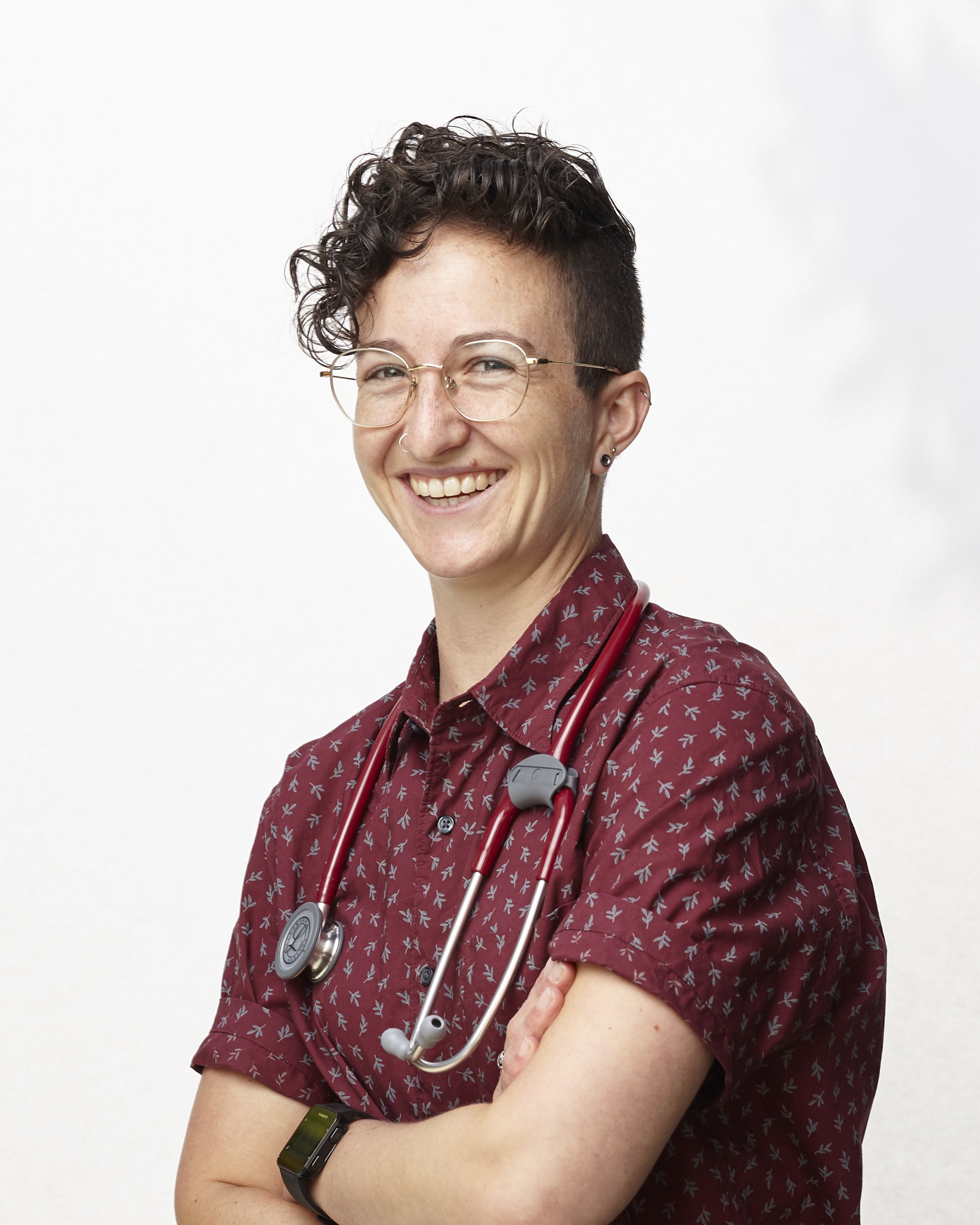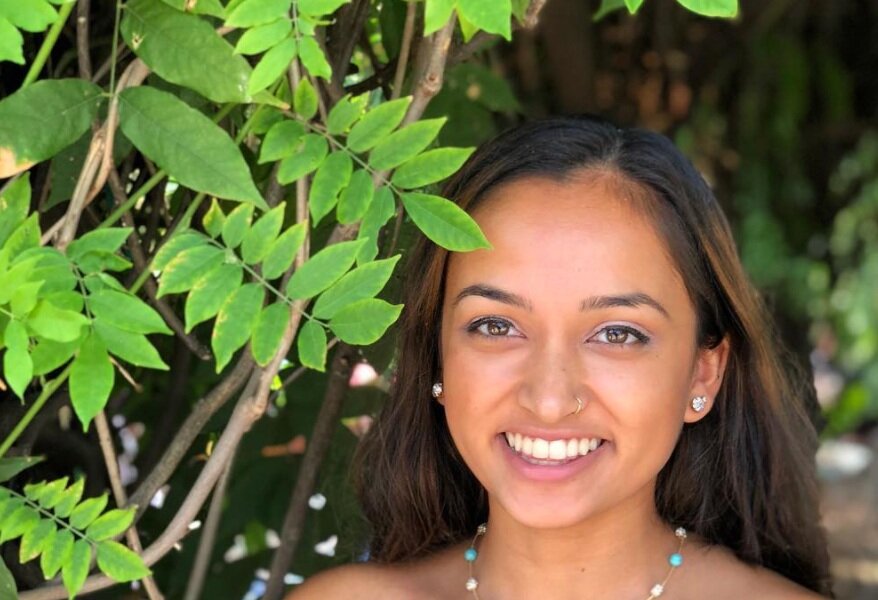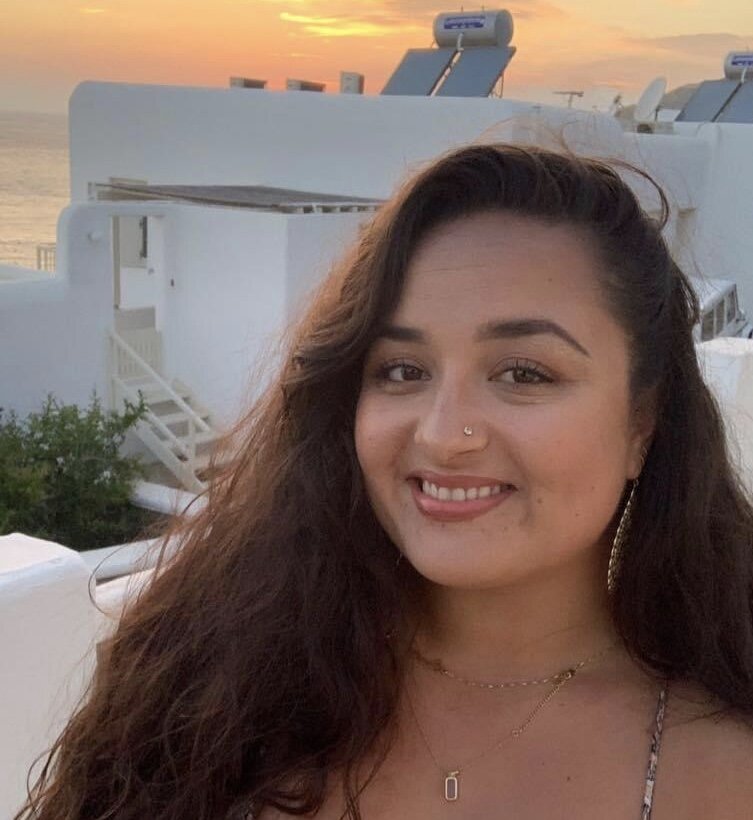Our Story
The Institute for Healing and Justice in Medicine began with a series of conversations among Noor Chadha, Bernie Lim, and Maddy Kane, all medical and graduate students at the Joint Medical Program with UCSF School of Medicine and UC Berkeley School of Public Health.
Frustrated by the various hierarchal outlets of knowledge production in Western medicine, we sought to create an interdisciplinary, centralized hub for work related to social justice and community activism in medicine that can be appreciated by, contributed to, and accessible to people of all backgrounds.
As we were writing our inaugural report Towards the Abolition of Biological Race in Medicine: Transforming Clinical Education, Research, and Practice, the research and writing processes were emotional and at times lonely. We were writing a full report as students alongside full-time medical and graduate studies not as a CV builder, but rather as a process of understanding how deeply ingrained and unchallenged injustice is within our current medical system. We wanted to understand why our medical and graduate studies oftentimes had us feeling like we, our families, and our communities of intersectional identities were seen as less than whole.
As we searched for inspiration and motivation during our process, we met amazing activists and students along the way who reminded us that we were not alone in doing this work. Our deepest inspirations and teachers have actually been people outside of medicine: community activists, critical race theory scholars, ethnic studies pioneers, holistic healers, writers, therapists, and more. We also realized that we were not the only medical students who felt this way. Rather, the reality is that medical education and the Western medical system has deliberately silenced many learners and communities, especially Black, Brown, Indigenous, students of color, and those of intersectional identities, for ages.
We are not the first to make this call. We are led by womxn of color; scholars and activists who have been making this same call for far too long. Yet our experiences as trainees reflect how racism continues to be deeply ingrained in health care. Medicine, and health care more broadly, has yet to heed their call. We have found many practicing clinicians and professors to be unfamiliar with the historical context and harm of their practices. Some are simply ignorant of the impact of their actions. We hope this Institute begins critical dialogue and change because we know how deeply historical scars run in medicine.
This is our action. As members of the health-care workforce, we find the current state of self-sacrificing labor, injustice ,and racism in medicine is untenable. We refused to see ourselves as lesser than and refuse to be part of a system that perpetuates harmful, deadly practices against Black people and people of color. We aim to use our unique positionality and experiences as medical and graduate students to offer a way forward for our current and future instructors, colleagues, and mentees. We are inspired by the growing body of research, commentary, and action by communities, clinicians, and learners. We are inspired by our own efforts to see ourselves, others, and our communities as inherently whole. Our aim is to amplify existing voices in this movement and to further bridge the gap between healing, justice, community, and medicine.
Our responsibilities to ourselves, our patients, our communities, and to justice demand we make this call to action. We are glad to have you here with us.
The Institute Organizing Team
In transition!
We’re in the middle of a leadership transition! We aim to have our people updated over the next several months and in the meantime, please know that not all our current leaders and organizers are listed here.











Aminta Kouyate is a proud Bay native. Born in Oakland, she is dedicated to eradicating the systems of oppression that create the health disparities for marginalized communities. As a medical student in the UC Berkeley-UCSF Joint Medical program, her research is focused on building an anti-racist medical education curriculum for healthcare providers. She is a reader, a writer, a kitchen magic maker, and a deep believer in laughter and joy. Aminta is dedicated to working towards a fundamental change in the way we practice medicine. She envisions leaving behind a system that separates healing from health and cultivating a new practice learning from community wisdom to center healing, happiness, rest, and justice for all people. She is one of the founding members of the White Coats for Black Lives Chapter at UC Berkeley, a Freedom School for Intersectional Medicine and Health Justice collaborator, a student of the Program in Medical Education for the Urban Underserved (PRIME-US), and most importantly she is a daughter, a sister, a friend, and a co-conspirator to many beloved people.
Originally from Seattle, Angela Zhang (she/hers) is a 4th year medical student at Brown in Providence, RI, which sits on the lands in the territories of the Wampanoag and Narragansett. Between years 3 and 4 of medical school she accepted a year-long Fellowship with the Office of Diversity and Multicultural Affairs to deepen her work in anti-racism. In this position, she facilitated Brown Advocates for Social Change and Equity (BASCE), an anti-racism and health equity fellowship for health professionals to address structural racism in medicine. She is interested in audio journalism and produces a podcast about structural and spatial inequity in medicine, titled Not Built For Us. She strongly believes that dismantling oppression involves collaboration from all fields within and outside medicine, and most importantly, the communities around us. She is also interested in anti-racism through the lens of API advocacy/allyship, climate change, refugee/carceral health, food, and reproductive justice.
Bernadette (Bernie) Lim, MS is a Creator, Self-Healer, Warrior, and daughter of Filipinx-Toisan immigrants who works tirelessly for the health of her beloved communities, namely those who are underserved. She is the founder of the Freedom Community Clinic, Freedom School for Intersectional Medicine & Health Justice, and Woke WOC Docs Podcast. Currently, she is a 3rd year medical student and PRIME-US Scholar at UCSF School of Medicine and recent Masters graduate through the UC Berkeley-UCSF Joint Medical Program, a dual degree program with the UC Berkeley School of Public Health. She is likely found facilitating healing or meditation circles, playing the piano, teaching/doing yoga, learning new languages, care-taking plants, or wandering aimlessly in the mural-lined streets of the Bay. She graduated from Harvard and was a Fulbright Scholar to India.
Edwin Lindo, JD was born in San Francisco and is the son of a family that immigrated from Central America. Raised by a single father, Edwin grew up in the Mission District of San Francisco, where he learned the power of community organizing and fighting for justice. While in undergrad and law school, Edwin witnessed the injustice perpetrated by police brutality and killings and was driven to seek justice. Since graduating law school, Edwin has been at the forefront of fighting against economic and educational oppression, demanding justice against police terror, and using education as a tool of raising consciousness and promoting social justice pedagogy. Edwin was a member of the Frisco Five hunger strike, where he and four others went on an 18-day hunger strike to demand justice for killings of innocent men of color in San Francisco. The San Francisco police chief was eventually fired. Edwin then joined UW School of Law as adjunct faculty, teaching Race And the Law and Latinx Critical Race Theory. Through his work deep work as a Critical Race Scholar Edwin eventually became Faculty at the University of Washington School of Medicine, Department of Family Medicine where his research, scholarship, and teaching has focused on the creation of Critical Race Theory & Medicine (MedCrit), the history of racialized medicine, race & racism within medicine, social justice and social movements, and decolonized pedagogies for critical education. focuses his work and scholarship on Critical Race Theory, Social Justice, and the effects of Racism in medicine, medical education, and health inequities of our most marginalized communities. He is also the Associate Director for the Center of Leadership and Innovation In Medical Education, where he leads Faculty Development and curricular changes towards Health Justice. If that isn’t enough, Estell (his partner and wife) and Edwin curated Estelita’s Library, a Social Justice Community Library & Bookstore dedicated to the goal of bringing truth and justice to communities through decentralized knowledge and decolonized spaces. The books within in the library cover topics of justice, liberation, identity, race & racism, economic and political theory, and anything else that guides us in understanding our world through a critical lens. Estelita’s Library is named after their 3 year old, Estella.
Maddy Kane, MS is a second year student at the UC Berkeley-UCSF Joint Medical Program who does community organizing work and research around immigration detention and trauma healing. Maddy joined the Freedom School because they believes that poetry, "heart work," connection to others, and collective liberation are at the core of health and social justice. They are working on supporting and centering WOC and QTPOC spaces for holistic healing and research connecting critical race theory and medicine. They grew up outside of Denver and has worked with several organizations supporting Latinx immigrants around the Bay Area, but their favorite was in Pescadero and they’d go back there in a heartbeat. They’re an avid believer in hugs, coffee, Joy Harjo, and being outside as much as possible.
Dr. Monica U. Hahn, MD, MPH, MS, AAHIVS is an Assistant Clinical Professor at UCSF in the Department of Family & Community Medicine, where she practices family-centered HIV care and teaches in medical student and residency training programs, including in the PRIME-Urban Underserved Program. Integrating her background in Ethnic Studies and critical race theory with her experience in community activism, community-based participatory research, and HIV clinical care & program management, she strives for creating novel ways of dismantling structural oppression in medicine, with a focus on medical education and HIV care, while uniting with other health equity advocates guided by core values of social justice and collective liberation.
Naomi Nkinsi is a third year MD/MPH student at the University of Washington School of Medicine and the University of Washington School of Public Health with a focus in Global Health. She graduated from undergrad at the UW in 2016 with double majors in Cellular Molecular and Developmental Biology and Public Health with interdisciplinary honors. During her time at UW, Naomi conducted research in the genome sciences department on congenital contracture syndromes as well as with Harvard Medical School and Boston Children’s Hospital on molecular targets for lung cancer and real-time tracking systems for the 2014 West Africa Ebola outbreak. After graduating she worked as a research technician at the Fred Hutchinson Cancer Research Center where she conducted a genome-wide CRISPR study to identify potential drug targets to treat non-small-cell lung cancer. As a technician at the Hutch she also served as a mentor to undergraduate and high-school students as well as local science educators through pipelines programs. Naomi is a strong advocate for centering anti-racism in medical education and practice and has published on this work in Academic Medicine as well as placed a crucial role in advocating for the removal of race in calculations of kidney function in the University of Washington medical system.
Noor Chadha, MS is a 3rd year med student at the UC Berkeley-UCSF Joint Medical Program who strives to integrate compassion, justice, and joy throughout her life and medical career. She is a co-author of Toward the Abolition of Biological Race in Medicine: Transforming Clinical Education, Research, and Practice. Her master's work focuses on youth civic engagement and health. Noor identifies as Sikh, as Punjabi American, as a sister, and as a dancer - she performed competitive Bhangra for several years, and who knows, maybe you'll see her make a comeback soon!
Dr. Rachel Bervell, MD, MS is a physician, creator, mentor, advocate, dreamer, and doer. She is focused on serving those who are most vulnerable and tackling disparities in medicine. During and since graduating from Harvard, Georgetown, and the University of Illinois at Chicago College of Medicine where she received her undergraduate, graduate, and medical degrees respectively, she has remained passionate about community engagement and population health. The daughter of Ghanaian immigrants, she founded the non-profit organization Hugs for Ghana which supports youth philanthropic endeavors, was a scholar in the Urban Medicine Program where her understanding of the healthcare system and community-based participatory research helped connect underserved patients with social resources, and has been humbled to receive numerous honors including being inducted to the Gold Humanism Honor Society. She is dedicated to equitable ObGyn care, reproductive health, and wellness for all communities, and brings those interests together on Instagram at The Black ObGyn Project. When she’s not keeping herself occupied doing the needed work, she can be found tending to her plants as a "plant mom", being a foodie, and enjoying traveling with her loved ones.
Shabnam Banerjee-McFarland, MA was raised in the Bay Area with a New Orleans heart, and is currently living in New York. She has committed her professional life to the love of her personal life: books. For the past five years she has been working in publishing, seeking to support anti-racist, intersectional movement-building with media. She believes in the power of stories as a primary tool for healing, and strives to work with storytellers, authors, and activists that represent and embody the diverse identities and experiences we all hold. More than anything, she really just wishes she were at the beach.
Shrey Goel: My name is Shrey Goel and I am a student of medicine and wellbeing living in Tucson, Arizona. Born to Indian immigrant parents, I come from a people with a long and well-developed history of formal healing practices. Being a student of allopathy, I am interested in gaining insight into the gaps between what allopathic medicine offers and true healing in order to help build bridges towards the latter. Beyond medicine my interests are engaging with other men to combat rape culture, reading, writing poetry, gardening, and cooking. As a learner, I take inspiration from activists/community scholars past and present who raise collective consciousness about the material conditions created by oppressive systems. As a brother and friend, I aim to build relationships and share knowledge in order to create a community of people with which to create change. As a human being, I seek to develop the wisdom necessary to practice meaningful compassion. I am so excited to join the Institute for Healing and Justice in Medicine in order to keep growing in all these areas.
